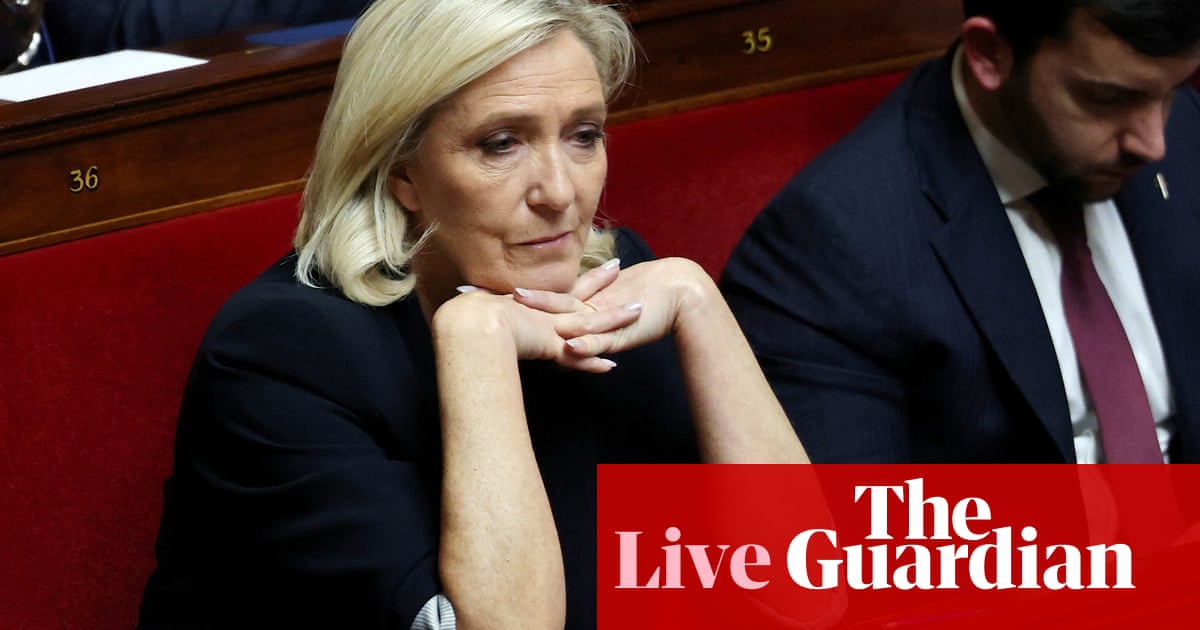Martin Kettle considers it uncertain whether Donald Trump’s tariffs will work, while noting that even Keynes supported their occasional use (Perilous and chaotic, Trump’s ‘liberation day’ endangers the world’s broken economy – and him, 2 April). Such an open-minded view risks overoptimism. Keynes’s support for the idea of tariffs was limited to specific short-term need, as in protection of fledgling industry. But Keynes knew well the harm of tariffs as long-term economic policy.
Far from being uncertain, it is inevitable that Trump’s tariffs will fail. The deep interconnectedness of international supply chains means Americans will see a swift rise in inflation (that key growth-killer Trump campaigned to reduce) as indispensable worldwide component imports push up the price of domestic US goods and the reverse is repeated around the world.
The only question is: how long is Trump prepared to punish the American people with this economic naivety? Be it tariffs, Ukraine, Russia, funding of federal services, overseas aid or giving licence to expansionist aggression, it is clear that, echoing our own Brexit self-harm, “learning the hard way” is actually the new world order that Trump embodies.
Nick Mayer
Southampton
The main focus of comment regarding Trump’s tariffs has been on the dire economic impact around the world as globalisation comes to an end. My bigger fear is the longer-term geopolitical impact. Globalisation has led to a rise in living standards across the world, and China’s focus on growth has diverted it from an expansionist foreign policy.
If, or rather when, world recession hits, China’s leaders and other authoritarian rulers will be tempted to turn to foreign adventures, including war, to distract their populations from their economic worries, with war having the added bonus that the young men who usually lead protests will be conscripted. If they object, they will be depicted as traitors, justifying harsh repressive measures.
The Smoot-Hawley tariffs of 1930 were intended to boost the US economy after the 1929 Wall Street crash, and we know how that worked out (and Trump’s appeasing of Putin over Ukraine completes the very worrying picture).
Adrian Cosker
Hitchin, Hertfordshire
The Office for Budget Responsibility last week warned that the “most” severe scenario, in which the UK and other nations retaliated to US tariffs, would result in GDP being 0.6% lower than expected this year and 1% lower next year (Trump hits UK with 10% tariffs as he ignites global trade war, 2 April). The self-imposed disaster that was Brexit has lowered GDP, it is estimated, by 4%. Has the British government considered the economic sense of joining Europe, I wonder, in order to “protect British industry” as the prime minister has stated in relation to Trump’s tariffs?
Gary Nethercott
Woodbridge, Suffolk
There was I thinking it would take a socialist revolution to bring down global capitalism. Mammon certainly moves in a mysterious way, its blunders to perform.
Karen Barratt
Winchester
I am surprised that San Serriffe was not included in the list of countries subjected to Donald Trump’s tariffs, along with the Antarctic islands only inhabited by penguins. Perhaps JD Vance is planning a visit (Letters, 2 April).
Diana Bailey
Edinburgh

.png) 18 hours ago
4
18 hours ago
4













































